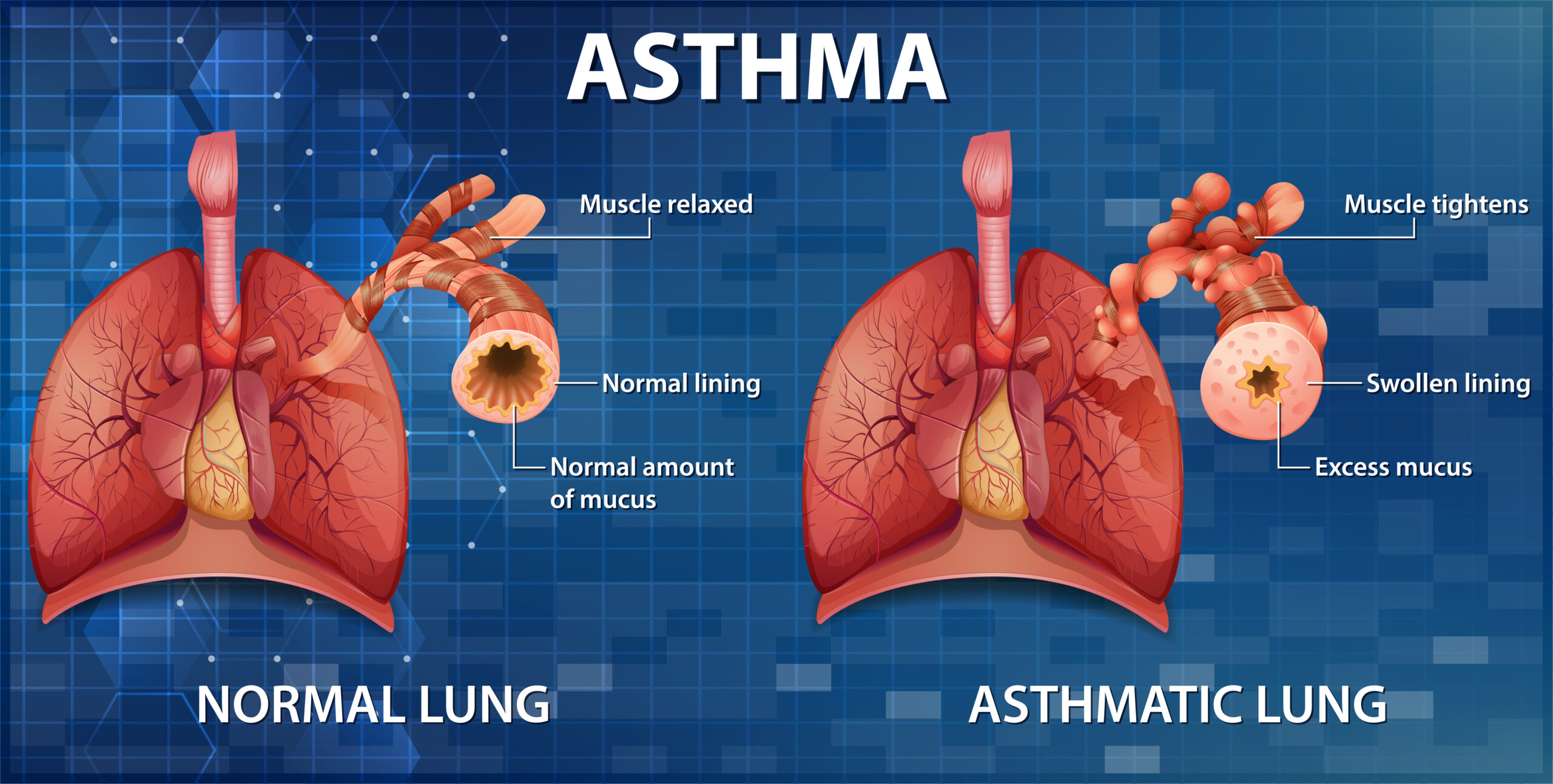Asthma Management: Tips for Better Control
Admin/ September 6, 2024/ Uncategorized
The Impact of Air Pollution on Respiratory Health

Asthma affects millions worldwide, making every breath a conscious effort. Yet, with the right knowledge and tools, it’s possible to regain control and live a full, active life. Whether you’re newly diagnosed or have been managing asthma for years, this guide will equip you with strategies to navigate triggers, understand your medication, and optimize your lifestyle.
Join NMPC as we explore effective asthma management techniques, ensuring each breath you take is a step towards a healthier, more vibrant life.
1. Be aware of your symptoms
Cough, wheeze and difficulty breathing are all signs that your asthma is not well controlled. If you feel that your symptoms are getting worse, follow the instructions from your doctor. Use a reliever inhaler (e.g. salbutamol) with a spacer to open your airways.
2. Identify and avoid your triggers
Common triggers include smoke, fumes, viral infections, pollen, changes in the weather, animal fur and feathers, and strong fragrances. Know what affects you and try to avoid if possible. If not possible, make sure you have your reliever inhaler readily available.
3. Know your inhalers
A reliever inhaler (also called a bronchodilator) opens the small airways and improves airflow in and out of the lungs. Use this when you have symptoms. A steroid or preventer inhaler reduces inflammation in the lungs and is an essential part of long-term asthma treatment. Inhalers are the safest, most effective treatment for asthma and allow people with asthma to lead a normal, active life.
4. Use a spacer
A spacer is a plastic chamber which connects the inhaler at one end, to your mouth via a mouthpiece or mask at the other end. It can help inhaled medicines to reach the small airways in the lungs and work better. The spacer allows more time for the medicine to be breathed in and means that less coordination is required. Without a spacer, you have to breath in deeply and press the inhaler at the same time – inhaled medicine often ends up in the mouth or throat and is ineffective.
5. Take back control
Knowledge is power. Ask your doctor to explain how your inhaled medicines work and how you should use them. Make sure your friends and family also know what to do if your asthma is bad. By taking your inhalers early, when you first notice that your symptoms are worsening, you can avoid a serious attack.


